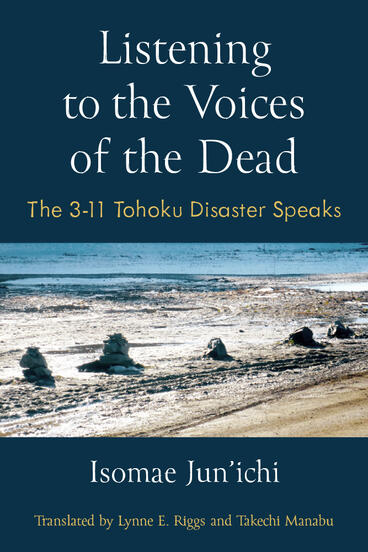Listening to the Voices of the Dead
The 3-11 Tohoku Disaster Speaks
An incisive observation of the traumas of loss and marginalization brought to the surface by the 2011 Tōhoku Disaster
Description
Listening to the Voices of the Dead is an account of the author’s search for the disquieted voices of the dead in the wake of the March 11, 2011, Tōhoku Disaster and his attempt to translate those voices for the living. Isomae Jun’ichi considers the disaster a challenge for outside observers to overcome, especially for practitioners of religion and religious studies. He chronicles the care and devotion for the dead shown by ordinary people, people displaced from their homes and loved ones. Drawing upon religious studies, Japanese history, postcolonial studies, and his own experiences during the disaster, Isomae uncovers historical symptoms brought to the surface by the traumas of disaster. Only by listening to the disquieted voices of the dead, translating them, and responding to them can we regain our true selves as well as offer peace to the spirits of the victims. While Listening to the Voices of the Dead focuses on a specific event in Japanese history and memory, it captures a broadening critique at the heart of many movements responding to how increasing globalization impacts our sense of place and community.
Isomae Jun’ichi is Professor at the International Research Center for Japanese Studies. Lynne E. Riggs and Takechi Manabu are professional translators of mainly nonfiction, working through the Center for Intercultural Communication, which they founded in 1990.
Reviews
“Listening to the Voices of the Dead is a beautifully written and moving narrative about coming to terms with Japan’s triple tragedy of 2011 that tasks the reader with the sober duty of continual ritualization and memorialization for those who died. It fills the gap in existing English language writing by a Japanese author with links to the triple disaster and will appeal to students and general readers alike.”
- Laura Miller, University of Missouri, St. Louis
“Listening to the Voices of the Dead is a very rich work with substantial ethnographic detail. It will serve as a vital resource to a wide interdisciplinary audience of scholars in Japanese studies, religious studies, and environmental historians as well as scholars working in memory studies and disaster studies. The book is a captivating read and an important ethical intervention into the current discussion of the crisis. It is indispensable work for anyone interested in contemporary Japan."
- Daniel O’Neill, University of California, Berkeley
“While the memories of the 3-11 disaster have quickly faded for the Japanese people, Jun’ichi Isomae’s masterful book engages in a profound reflection on the restoration of the humanity that Japan has lost in its pursuit of capitalist modernization, through a moving attempt at dialogue between the dead and the living. Highly recommended.”
- Katsuya Hirano, University of California, Los Angeles

